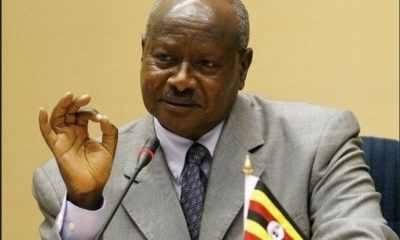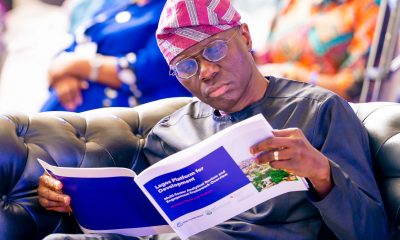The World Bank has said that cash transfers can help save Nigerians from intergenerational poverty traps as inflation and low economic growth adversely affect the poor.
In its ‘Macro Poverty Outlook: Country-by-country Analysis and Projections for the Developing World’ report, the Bretton Woods Institution said that inflation and low economic growth would add 2.8 million people to poverty by the end of 2023.
“The share of Nigerians living below the international poverty line is expected to peak in 2024 at 38.8% before beginning a gradual decline, as inflation cools down and economic growth picks up.
“Targeted measures, including cash transfers, could mitigate short-term adjustment costs to the poor and vulnerable and mitigate their risk of falling into intergenerational poverty traps.”
It was also disclosed that an estimated 37.5% of Nigerians will live below $2.17 per day (international poverty rate) while about 70.4% of Nigerians will live below $3.65 per day (lower middle-income poverty rate) in 2023.
READ ALSO: Why FG obtained 1.5bn World Bank loan–Edun
The Washington-based bank also noted that the budget deficit is anticipated to decrease from 5% of GDP in 2022 to approximately 4% in 2025, even though expenditure would rise due to the implementation of compensatory measures to protect households from the initial effects of the subsidy reform.
The World Bank further said that public debt is projected to reach 45% of GDP in 2023 due to fiscal financing needs and the depreciation of the naira. In the same year, debt servicing is projected to remain higher than total revenue. It added that “Debt servicing is expected to drop to about 68% of revenues by 2025.”
On the risks that could weaken the country’s expected economic performance, the report read:
“Several risks could result in weaker than expected economic performance. Internally, policy reversals and weaker reform impetus could lower the expected payoffs. A further decline in oil production or an inability to ramp up non-oil revenues quickly could also affect the external and fiscal balances.
AdvertisementREAD ALSO: Museveni slams World Bank for freezing loans over anti-gay law
“Externally, continued monetary tightening globally, the war in Ukraine, unilateral food export bans, and climate events could undermine economic activity in Nigeria. Regional instability sparked by the recent coup in Niger could also weigh on the recovery. Sustaining the reform momentum and unwinding structural constraints to inclusive growth offers a path forward.”
President Bola Tinubu recently launched a social safety net programme that will distribute N25,000 to 15 million homes for three months in observance of the 2023 International Day for the Eradication of Poverty.
Of the $800 million authorised for the National Social Safety Net Program-Scale Up, the World Bank has already released about $299.99 million to Nigeria.
The World Bank gave its approval to the National Social Safety Net Programme-Scale Up on December 16, 2021, and it is anticipated to continue until June 30, 2024.
The elimination of fuel subsidies and other recent policies have had a disproportionate impact on Nigeria’s poor and vulnerable, who stand to benefit greatly from a monthly cash transfer system that the Federal Government intends to fund with this loan.


 Comments and Issues2 days ago
Comments and Issues2 days ago
 Business6 days ago
Business6 days ago
 Business1 week ago
Business1 week ago
 Business1 week ago
Business1 week ago
 Business5 days ago
Business5 days ago
 Comments and Issues5 days ago
Comments and Issues5 days ago
 Education7 days ago
Education7 days ago
 News6 days ago
News6 days ago















